Professor Kirk D. Burkhalter ’04 Answers the NYLS 10
Professor Kirk D. Burkhalter ’04 is a criminal law expert and a retired NYPD Detective, First Grade. As a member of the New York Law School faculty, he teaches a number of courses, including topics such as criminal law and legal practice, to our student body. Professor Burkhalter has brought his experience and expertise to the national conversation on police reform and accountability, including through his role as the director of the 21st Century Policing Project (P21) at NYLS. As director, he leads the project in working to boldly advance critical racial justice and police reform through legal and policy advocacy, thought leadership, comparative analyses of different policing and Civilian Complaint Review Board models, on-site assistance to local jurisdictions, and robust engagement in the American Bar Association’s Legal Education Police Practices Consortium.
Here, Professor Burkhalter answers the NYLS 10—10 questions about his work, his interests, and the things he looks forward to.
1. What is the focus of your work?
Outside the classroom, my goal has been twofold: first, to educate people via media commentary on problems involving policing and the fact that the fairly recent attention these problems have received do not mean these are problems are new or somehow worse. Rather, they have been consistent throughout American history. Second, rather than simply being the town crier of doom and gloom, I like to think I work toward finding methodologies whereby the police can more effectively serve and protect. This conversation begins with a redefinition of “policing” and the role of law enforcement in a modern society.
2. How has your scholarship and interests changed over your career?
Teaching requires an enormous time commitment, especially when you are passionate about it. After 15 years of full-time law school teaching, I feel like I am finally finding time to work on other projects, like the 21st Century Policing Project (P21), where we develop strategies with law enforcement departments and municipalities around the country to implement police reforms and to improve the relationship between police departments and the diverse communities they serve. I hope these and other projects will have an important impact outside of the classroom.
3. How do people respond to your work?
Favorably (knock on wood)! The time has been ripe for the conversation. I have found that my students, colleagues, and the general public are quite interested and supportive.
4. What’s a problem you wish you could solve with a snap of your fingers?
The problem that has plagued us since the inception of the institution of policing: segments of the population believe their interests and well-being conflict with and are adversarial to those of the law enforcement community and the criminal justice system. Regarding our criminal justice system, beyond the concept of “a fair day in court,” the focus must also be on a fair opportunity not to have to go to court at all. The history of policing in the United States is complicated. If I could snap my fingers, the entity that is responsible for enforcing our laws would look quite different from what we have today.
5. What questions do you have that you want to be able to answer with your work?
I’m interested in providing practical answers to the questions that arise about implementing fair and effective policing practices. I strive to work with police departments and the community to provide solutions to the problems I’ve discussed here.
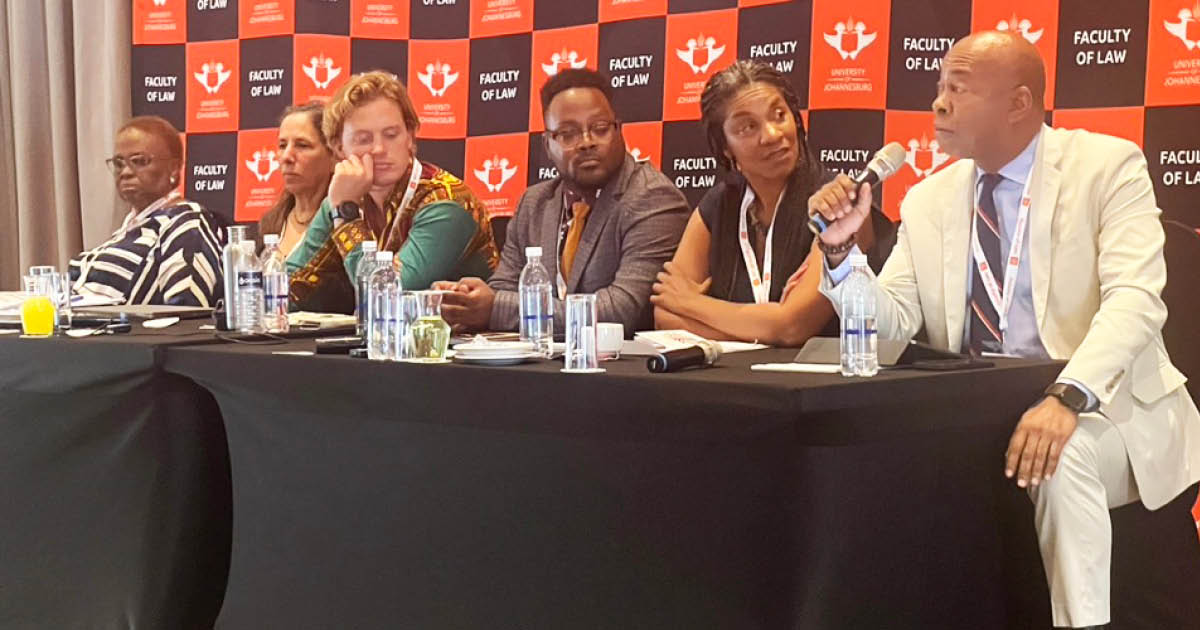
In December 2022, Professor Kirk Burkhalter participated in “Teaching About Race and Policing in New York City” panel discussion at a conference in South Africa.
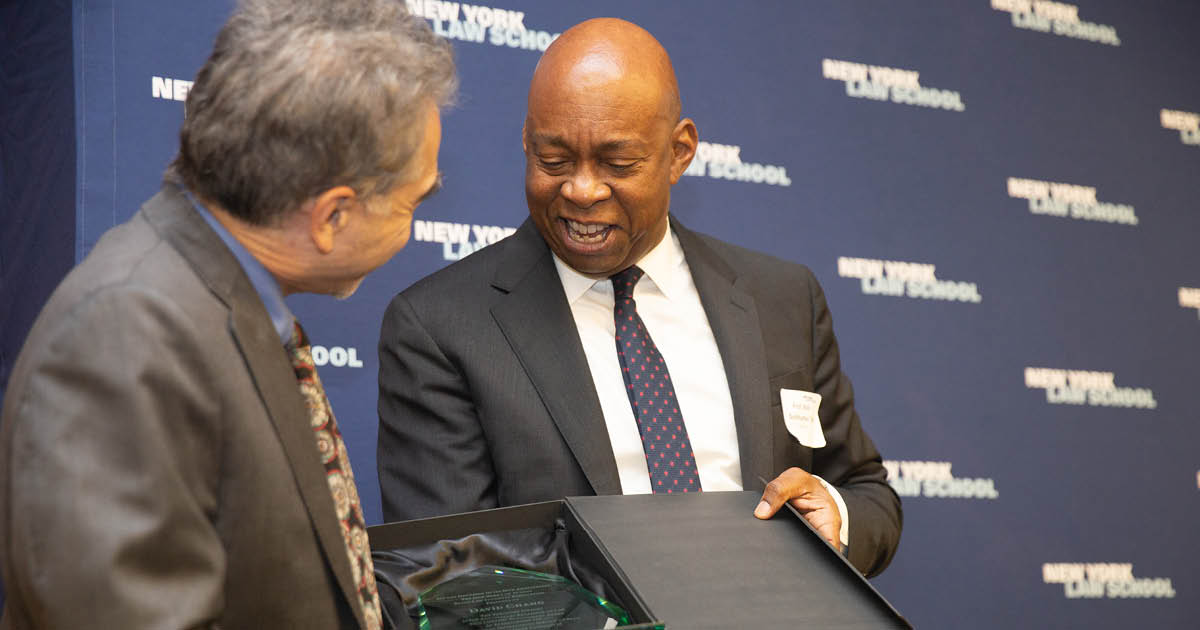
As the NYLS Black Law Students Association (BLSA) Advisor, Professor Kirk Burkhalter presented Professor Emeritus David Chang with an award at the 2023 BLSA Alumni Dinner.
My first and foremost rule is that I never want a former student to come back to me after graduating and ask, “Why didn’t you prepare me for practice?” or “Why didn’t you let me know the professional standard I would be held to?” I sincerely hope that all my students find classes with me interesting, engaging, exciting, and fun, and that they remember our time together fondly. However, this is a professional school. As such, I have a fiduciary responsibility to prepare students for success in the legal profession. Not to try to do so, or make best efforts, but to do so.
7. What are you excited about these days?
I am very excited to be disappointed by the Mets in September and for the return of the New York football season (as only true New York sports fans understand!). I’m also excited about the upcoming season of Jazz at Lincoln Center—great music inside the beautiful Rose Hall. In particular, there will be a performance in mid-January entitled “Cool School & Hard Bop” featuring the music of Miles Davis, MJQ, the Max Roach-Clifford Brown Quintet, Horace Silver, and Art Blakey. Should be amazing!
8. What’s the next year like for you?
The fall is always such an interesting time; students and faculty alike always enter or return to the law school with renewed focus and enthusiasm. I look forward to that feeling in August. I hope to move the ball forward and complete a couple of P21 projects I have been working on over the past year.
9. Whose work excites you these days?
That is a difficult question. This summer I have been working my way through Thomas Hertog’s On the Origin of Time: Stephen Hawking’s Final Theory and Sean Carroll’s The Biggest Ideas in the Universe: Space, Time, and Motion. What do these works have to do with law? Nothing, and that’s really okay. I think it’s important for law students and legal professionals to take time to cultivate interests outside of the profession. The practice of law is an intellectual pursuit; therefore, I firmly believe that the exploration of any subject matter that challenges one intellectually will make one a more effective lawyer.
10. What are you reading, watching, or listening to?
I do far more listening than anything else. I listen to music when I work, work when I listen to music, or simply unplug and listen to music. I have been in a Yusef Lateef phase lately. He was a jazz musician who played the tenor sax, flute, and oboe—cool stuff. I have also been listening to a lot of Charles Mingus, an amazing composer, arraigner, and bass player, and trying to complete my collection of his LPs (though some of his highly sought after LPs can be a bit costly). And there’s Samara Joy, Terrace Martin, Andra Day, and several other really amazing contemporary artists.
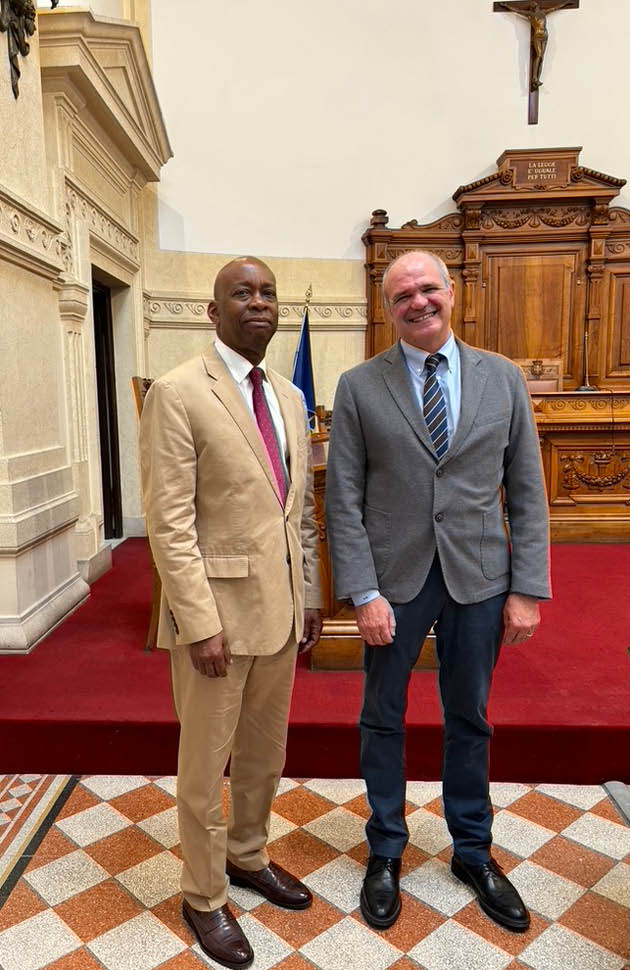
Professor Kirk Burkhalter with Judge Gualtiero Michelini of the Italian Supreme Court of Cassazione at the 2024 Law and Global Society Summer Program in Rome.
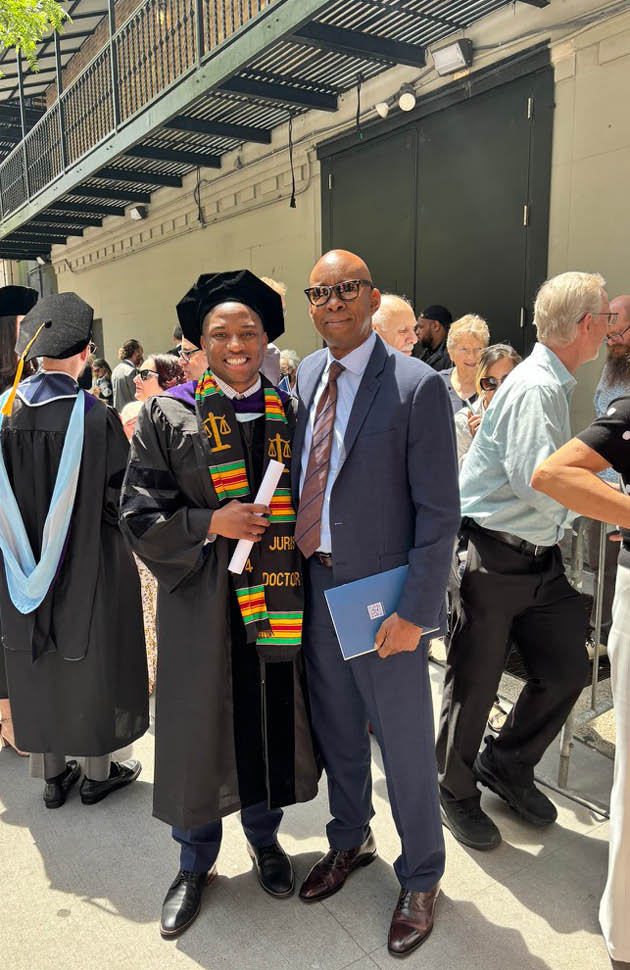
Professor Kirk Burkhalter with NYLS graduate Yorlson Lotin '24 at the 2024 Commencement Ceremony at the Beacon Theatre.
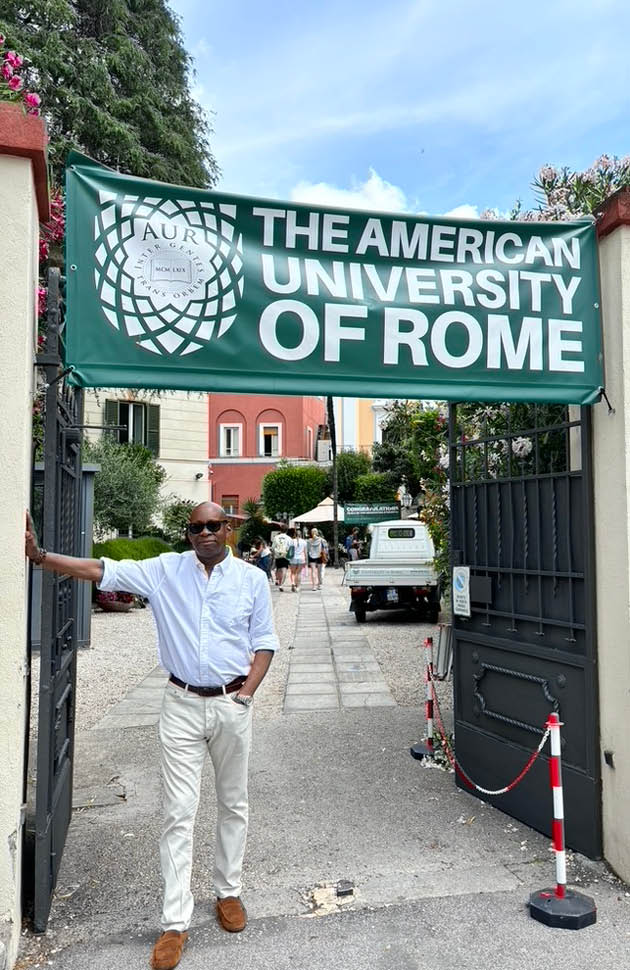
As part of the 2024 Law and Global Society Summer Program, Professor Kirk Burkhalter at the American University of Rome campus during the 2024 Law and Global Society Summer Program.
